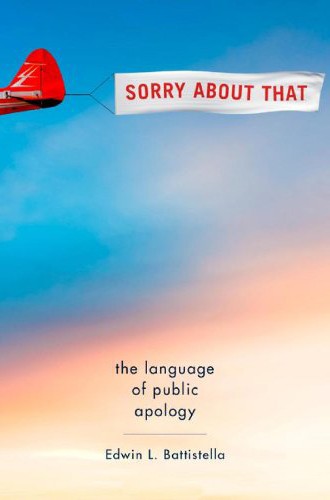Sorry About That, by Edwin L. Battistella
When the popular televangelist Jimmy Swaggart was blackmailed into confessing his sexual liaison with a prostitute, he cried many tears during the televised address to his church and said, “I have sinned.” However, he did not discuss the liaison. Despite his silence about the details of his sin, Swaggart’s 1988 public confession was regarded at the time as an effective response that saved his ministry, even though critics noted the absence of substance.
The divided public reception of Swaggart’s confession is a prime illustration of the confusion in American culture about the meaning and purpose of public confession—confusion that rhetorical scholar Dave Tell has described as “confessional anxiety.” According to Tell, in his book Confessional Crises and Cultural Politics in Twentieth-Century America, we experience confessional anxiety because we swim in a sea of personal stories—memoirs, interviews, and testimonies—that claim to disclose the real truth about a controversy or a disputed event. Yet, such disclosures are also typically partisan speeches designed to deflect criticism and, frequently, to take sides in cultural battles over such issues as sex, race, religion, and violence. The emotional authenticity that we value in confessional speech betrays the truth that we seek from the confessor. Behind Swaggart’s tears was a calculated silence about his misdeeds designed to protect his moral image and maintain the financial standing of his ministry.
The story of Swaggart’s empty confession is only one of numerous accounts of historic apologies presented by linguistics scholar Edwin Battistella in this anecdotal study of public apology.





